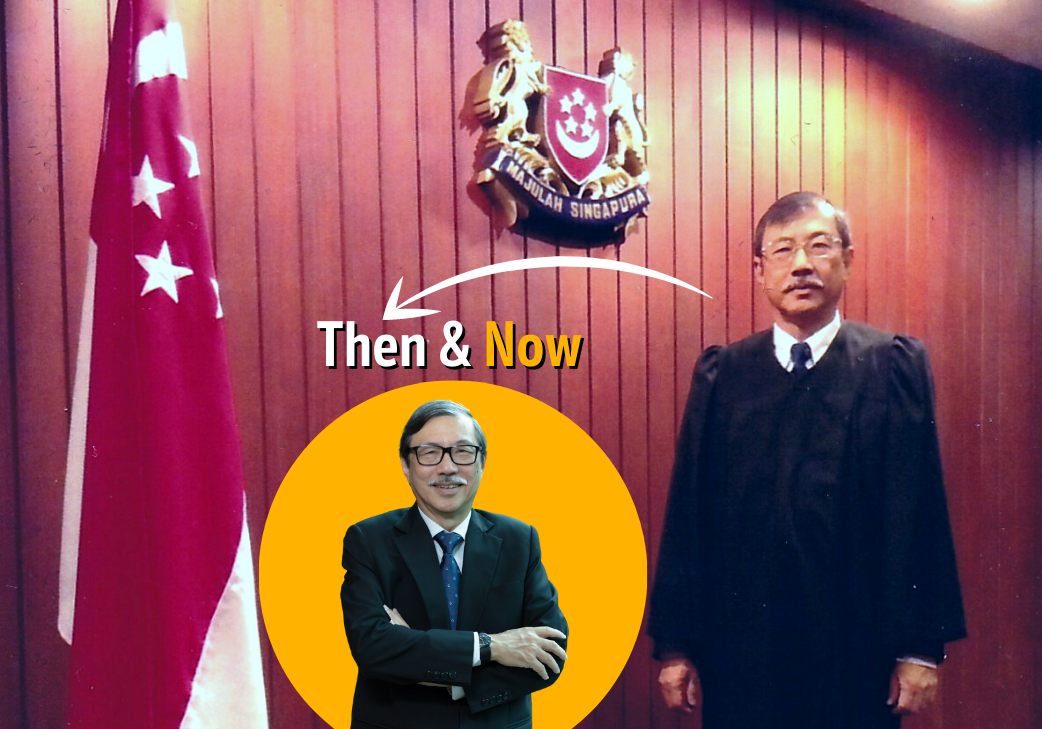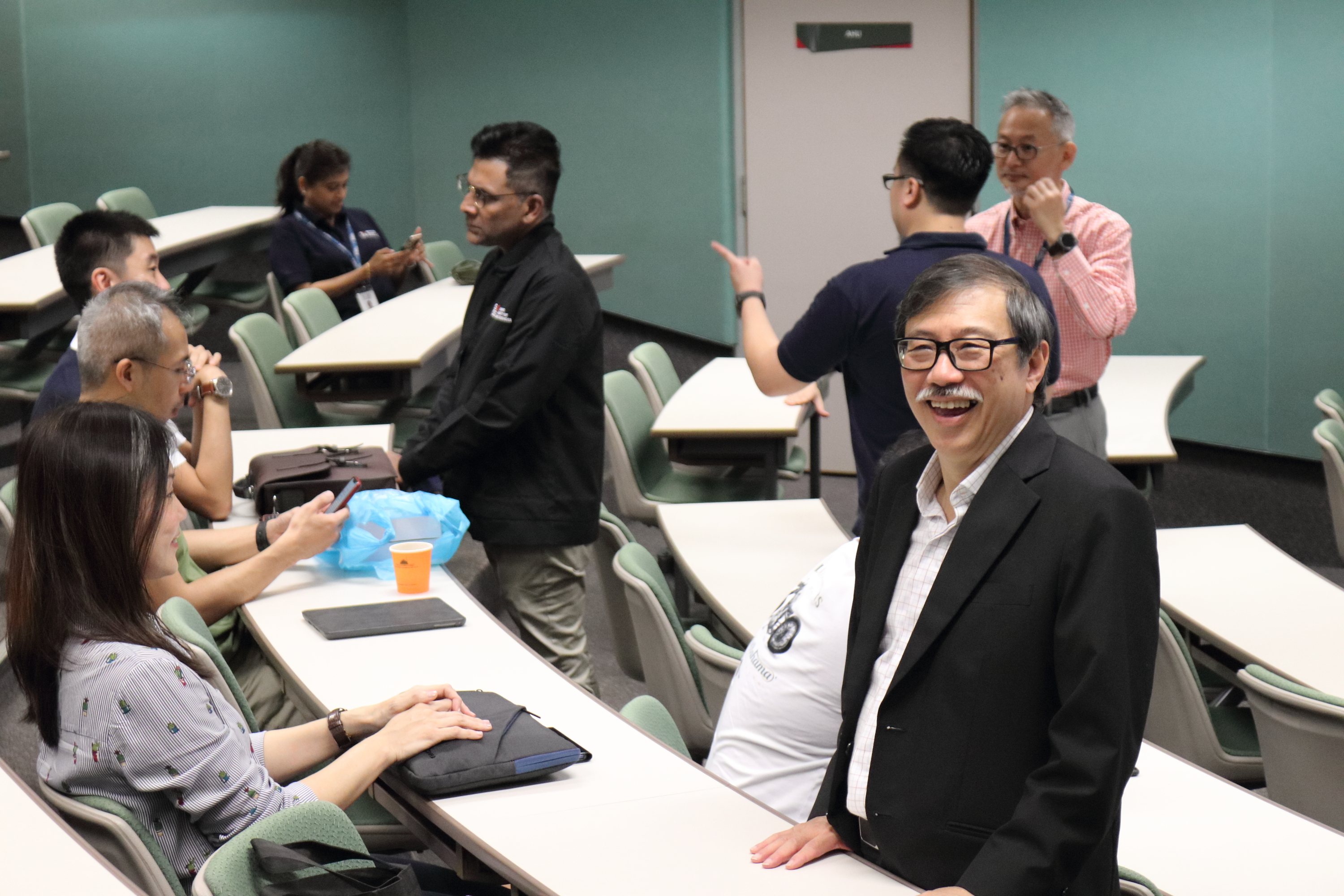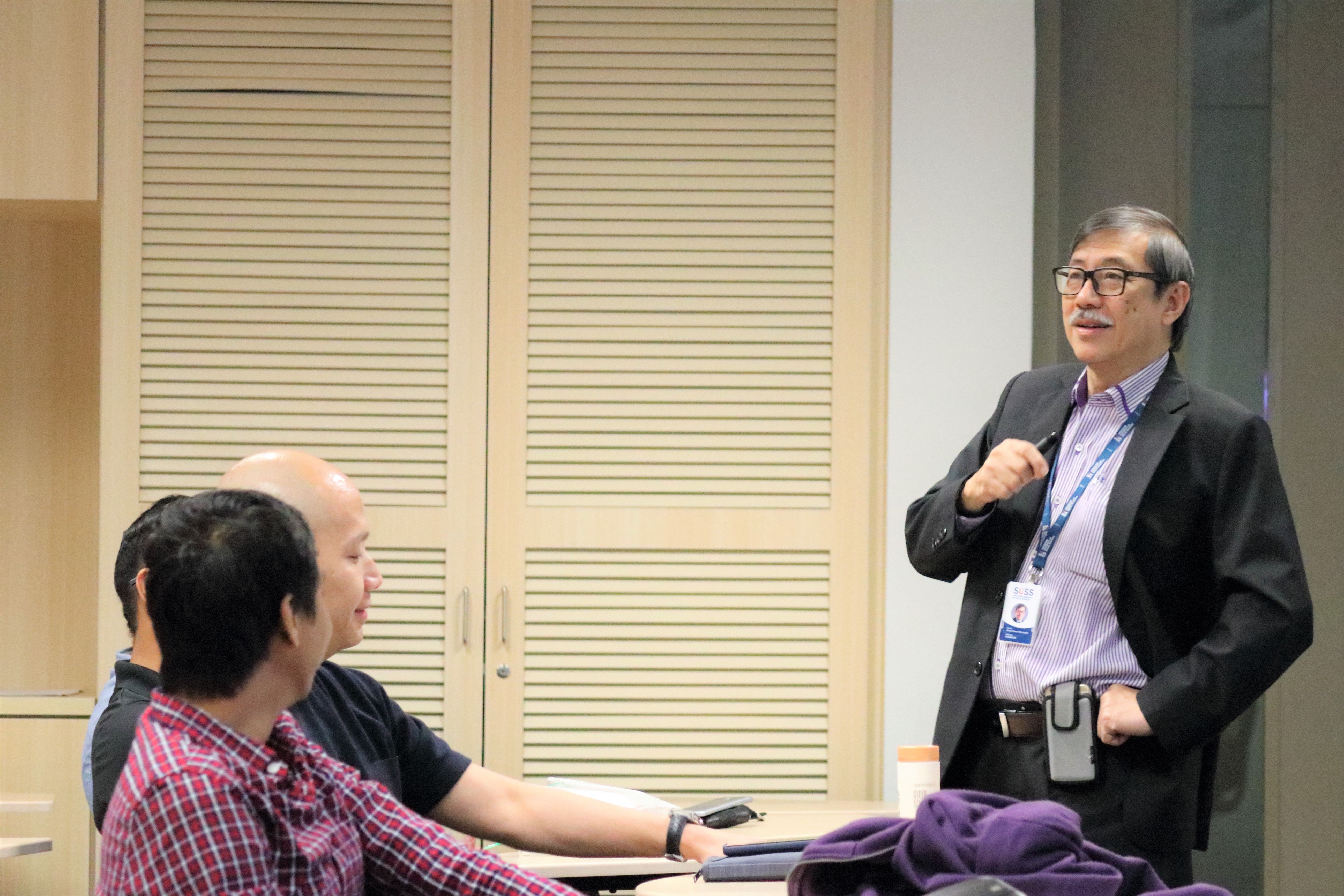In Conversation with: Dean Leslie Chew
In Conversation with: Dean Leslie Chew
Insight MinLaw goes behind the scenes to uncover stories about how the work we do impacts you.
Professor Leslie Chew SC is the founding and current Dean of Singapore’s third law school, the School of Law at the Singapore University of Social Sciences (SUSS). Armed with over 40 years of legal experience, he spent seven years in the judiciary as a Senior District Judge and was appointed Senior Counsel by the Supreme Court of Singapore in 2000. Prof Chew is also an accomplished commercial arbitrator, having practiced as an arbitrator and arbitration counsel since 1993.
Insight MinLaw caught up with Prof Chew to glean his perspectives of being a ‘socially conscious’ lawyer, his takeaways from legal practice and academia, and developing curiosity in the quest for lifelong learning.
 A photograph taken in early 2014 when Prof Chew was serving as a Senior District Judge. (Credit: Prof Leslie Chew)
A photograph taken in early 2014 when Prof Chew was serving as a Senior District Judge. (Credit: Prof Leslie Chew)
Insight MinLaw: SUSS saw the graduation of its pioneer batch of law students in October 2021. As the Dean of the first law school in Singapore with a specific focus on family and criminal law where a significant proportion of your students are working adults, what is it like teaching mature students?
Prof Chew: Teaching adults requires teachers to remind themselves that the students are not ‘fresh’ minds. They come with their own experience of the world and the industry. At the same time, we can tap into their prior experience to help them make the connection between what they know and what they are now trying to learn.
There is no single size that fits all, and we have to adapt and be flexible. For example, a student with prior experience studying Law and Management who is also working as a paralegal, needs to be treated differently from another student without any prior law background.
Insight MinLaw: The journey to completing a law programme is not easy. The Juris Doctor (J.D.) programme takes 4 to 6 years to complete and the Bachelor of Laws (LL.B.) programme, 4.5 to 6 years. What do you think are the key ingredients to sticking it through while juggling work and family? Any words of advice to new or potential applicants?
Prof Chew: Research has shown that for students who succeed, it is not simply about being able. Many able students fail. It is about commitment and above all, passion and perseverance – ‘Grit’, Angela Duckworth (2016).
This is particularly true of SUSS’s law students. They are working adults, often with young families. Juggling work, family responsibilities and school is not easy. However, the first batch of graduates, both from the J.D. and LL.B. programmes, have shown it is ‘doable’. The testimony of a recent LL.B. graduate, Sara Yang, is one fine example. Sara completed her course while working and at the same time, giving birth to two children! (Find out more about Sara’s story below.)
As the Dean of NUS Law (read more at the end of the article) has observed, do not pursue law studies unless you really want it. Do not buy into the glamour or attractions offered by the media and the movies! Like all professions, the legal profession is one that requires a love for what you do to the exclusion of other ‘distractions’.
 Prof Chew sharing a candid moment with his students at SUSS. (Credit: Prof Leslie Chew)
Prof Chew sharing a candid moment with his students at SUSS. (Credit: Prof Leslie Chew)
Insight MinLaw: You spoke about being a ‘socially conscious’ lawyer in a past media interview. In your opinion, what does it mean to be a ‘socially-conscious’ family/criminal lawyer? How do you think the practice of family/criminal law may evolve, and what would be other useful traits that would put lawyers practicing family/criminal law in good stead ahead?
Prof Chew: First, when I speak of a ‘socially conscious’ lawyer, I am referring to the fact that a lawyer, particularly in Singapore, has the responsibility to also contribute to the wellbeing of his or her community. The legal profession offers an attractive and financially rewarding career. But beyond earning a living, a lawyer is, in many senses, an advocate for his or her fellow citizens. And so, I feel strongly that a lawyer in Singapore should be practicing in a manner that is more than just earning a living. A lawyer should continuously have a social conscience which helps others and contributes to the overall wellbeing of his or her community. After all, the lawyer is part of the third leg in the administration of justice – the other two being the Judiciary and the State.
Second, both in family law and criminal law practice, the heart of the matter are the humans who are embroiled in crisis, whether in the family setting or in relation to criminal offences. A lawyer in these practice areas, in particular, must have empathy and also a real sense of justice not just for the client he or she represents, but also for the community as a whole.
Insight MinLaw: Prof, you have over 40 years of legal experience, during which you have amassed a wealth of experience and accomplishments in areas not limited to arbitration, mediation, and in the judiciary. Can you share with our readers the aspects of legal practice and academia which you enjoy, and how they vary?
Prof Chew: I have been truly blessed. I have enjoyed every aspect of the law and legal practice, both in public service and private practice. I feel strongly, and I have shared this with every cohort of law students coming through our law school, that to be a lawyer is a privilege. As a judge in the State Courts, I learnt first-hand the frailties of humankind, and in the process, learnt to help parties to resolve their disputes and legal issues in as amicable a way as possible. As a practicing lawyer, I learnt much from my clients. I learnt of and shared in their struggles in order to achieve success in business, appreciating the effort and sacrifice they often had to make – there is no success without hard work and commitment. As an academic, I feel the burden of passing on to future generations, the appreciation for the rule of law and what it can do for the community.
Insight MinLaw: From a personal perspective, how do you embody lifelong learning?
Prof Chew: I think the best and only way to appreciate and experience lifelong learning is to develop a curiosity for all things, even things that may seem of little use. If you have, what I call, a ‘general curiosity’, it is inevitable that you would want to learn and indeed continue to learn throughout your life. That is the best and the healthiest way to pursue lifelong learning. It also encompasses both formal and informal learning.
 Prof Chew, on the right. (Credit: SUSS School of Law)
Prof Chew, on the right. (Credit: SUSS School of Law)
Insight MinLaw: As a busy person holding multiple portfolios, how do you find time for your personal commitments or to indulge in personal pleasures?
Prof Chew: While time is finite, it is not impossible to find time to do the things you want to do and enjoy doing. It is a matter of priorities and of course, sacrifice. We cannot have everything but we can consciously decide what we want. I make time for watching movies on TV and Netflix. I find time to read, mostly non-fiction. I am also truly fortunate that I actually enjoy reading court judgments! What else could I ask for?
SUSS Law Graduate Juggled Work, Studies and Motherhood
Sara Yang, 34, who graduated with a Bachelor of Laws in October 2021, was among the pioneer batch of 20 law graduates from the SUSS School of Law. She gave birth to two children, now aged four and one, during her 4.5-year course at SUSS. Her journey of pursuing law while juggling work and motherhood was unfathomable yet admirable at the same time. While she had contemplated deferring her studies after her second child, Sara soldiered on after heeding advice from her university’s academic advisor, and with her husband’s unwavering support.
Last updated on 7 January 2022
Other stories you may like:
In Conversation with: Dean Simon Chesterman
The Rise of Legal Technology

